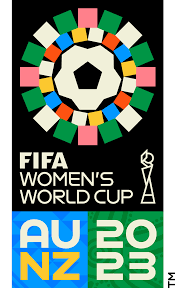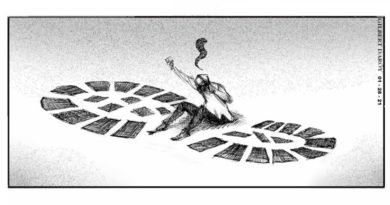OP ED OPINION-EDITORIAL | FINDING ANSWER- Soaring high in football
FINDING ANSWER

Despite Sunday’s crushing 6-0 loss of the Philippine women’s football team to Norway, ranked No. 12 in the world, the Filipinas have nothing to be ashamed of.
Just being qualified to compete, for the first time ever, in the FIFA Women’s World Cup which is undoubtedly football’s biggest stage, was certainly a great honor in itself for the Filipinas. And to secure our country’s first ever victory at the World Cup, a 1-0 win against New Zealand last Tuesday, was nothing less than amazing.
Here’s why: Compared to many countries that have scored their first wins after numerous games in several world cups, the Philippines’ early win was phenomenal indeed.

.
“To think that we have done it in our second match in our first World Cup. You can’t really appreciate how far we’ve come back in the pack compared to where those countries where in terms of their football history, their culture and investment,” Filipinas coach Alen Stajcic said in a Manila Bulletin sports article.
“Of heart and spirit, this team has got it in spades. In all those factors, they are 10 of 10,” Stajcic explained. “They are one of the best teams in the world for unity, collective effort and playing above themselves as a unit.”
The Filipinas are indeed among the best. They secured a berth in the 2023 Women’s World Cup with a dramatic quarterfinal victory over Chinese-Taipei in the 2022 AFC Asian Cup. Before the incredible rise of the Filipinas, it was the Philippine men’s football team called Azkals that made history by securing a first-ever berth in the AFC Asian Cup.
The tremendous successes of both the Filipinas and Azkals ought to inspire many young Filipinos toward football in this basketball-crazy country of ours. In the world of sports, football (soccer) is indisputably the most watched and the most loved, with an international audience numbering 3.5 billion fans, or one of every two people in the planet.
It is in football that the Philippines has a chance to excel. Unlike in other sports, football players don’t really need to be tall and hefty.

In 1996, as Laguna governor, I promoted football in the province starting with elementary and high school students. With training and facilities made available, Laguna emerged as consistent champion in regional and national competitions.
The Laguna Cup, similar to Gothia Cup in Scandinavian countries, was what I organized with several teams from other provinces and cities participating. The sports events were the biggest elementary and high school competitions at that time.
The historic triumph of the Filipinas would certainly inspire the Philippine Football Federation, the country’s governing body on football where I sit as a member of its Board of Governors, to intensify efforts toward development of the sport here and to promote more public awareness of football in the Philippines.
Young football enthusiasts from all over the country, particularly in the grassroots level, could be tapped to expand the base of Filipino players and raise the level of the sport here as the Philippines strives towards being the “football capital” in Southeast Asia.
The extensive development of football starting from the grassroots is crucial. It is imperative that short-term, medium-term, and long-term programs for training and nurturing of our young football enthusiasts are sustained. In fact, such programs have been the focus of the Laguna-Cavite Regional Football Association of which I am president.
But government support is vital. Without such, grassroots sports development essential in building an elite sports program is not sustainable. Local government units working hand in hand with the private sector is ideal for grassroots sports development.
The potential of Filipinos to make it big in the world’s most dominant sport isn’t farfetched. Over a hundred years ago, a 15-year-old boy who scored three goals in his first appearance for Futbol Club Barcelona (FC Barcelona) was Filipino.

Paulino Alcantara, born in Iloilo to a Spanish father and Filipino mother, accomplished his incredible feat on February 25, 1912 and went on to score 369 goals in 357 appearances with FC Barcelona, then one of the world’s most celebrated football clubs.
“For many years after, children from Barcelona would recall that moment and would wish to do the same as the man from the Philippines,” read FC Barcelona’s website. Alcantara died in 1964 but he’s not forgotten. In 2007, he was named by the Federation Internationale de Football Association (FIFA) as the “best Asian player of all time” and regarded by FC Barcelona as the “hero of the Philippines’ footballing past.”
With the inspiring triumph of the Filipinas and Azkals, it won’t be surprising if more football greats like Alcantara would emerge. ([email protected])


 Memento Maxima Digital Marketing
Memento Maxima Digital Marketing
 Memento Maxima Digital Marketing
Memento Maxima Digital Marketing






